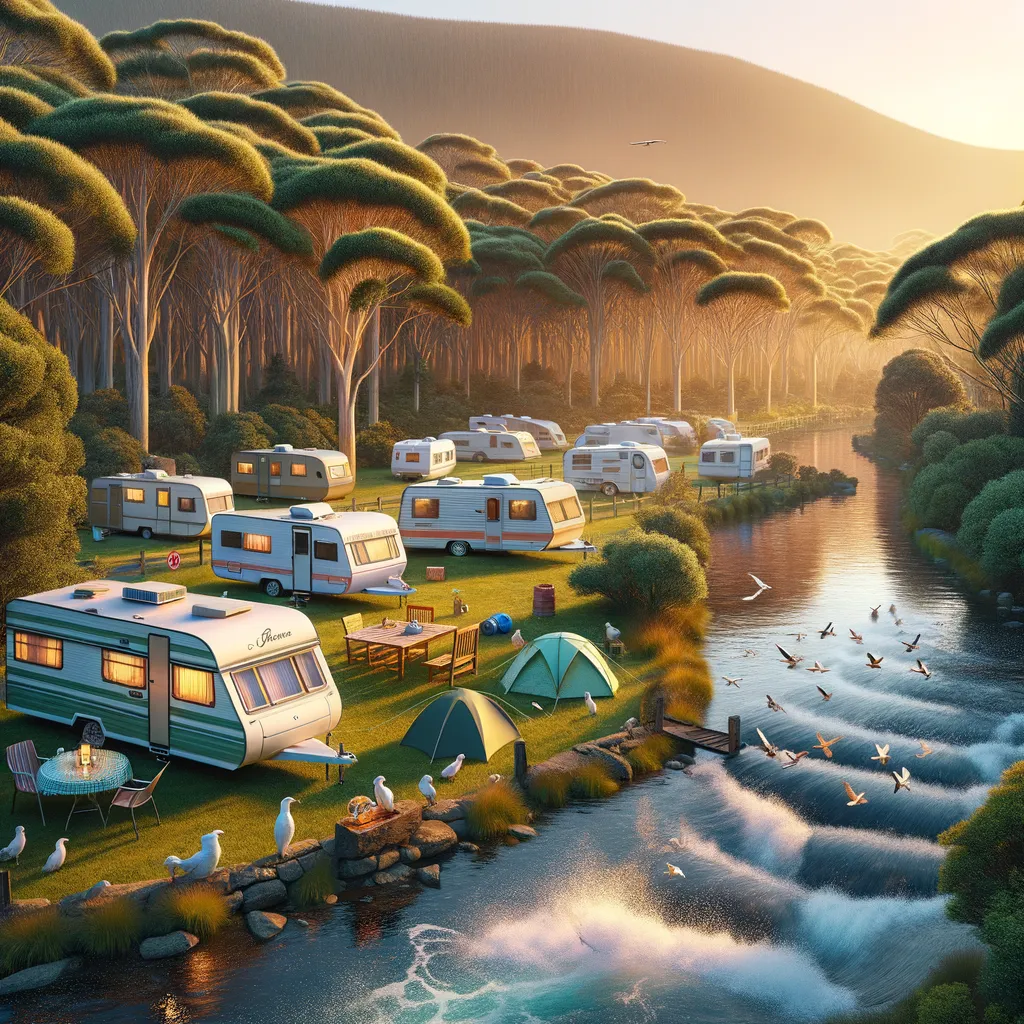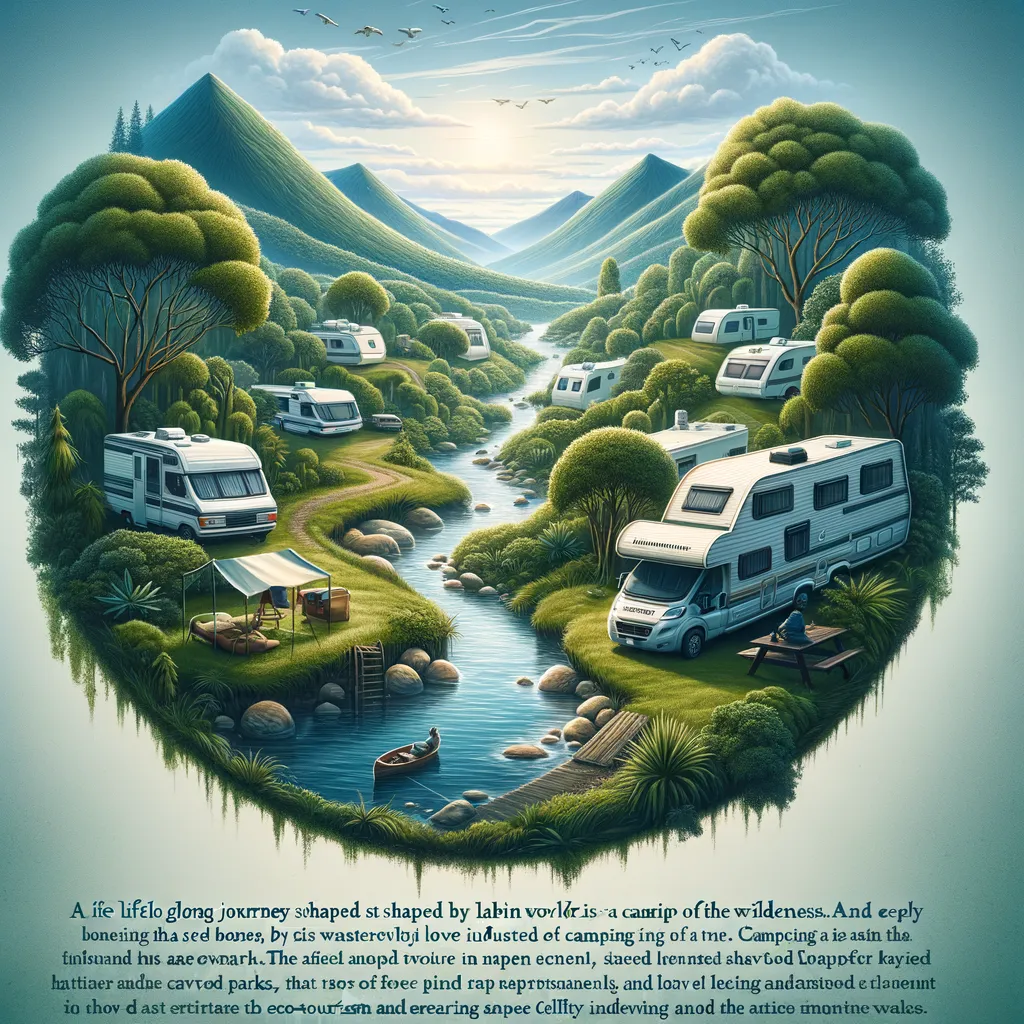How to Plan a Zero-Waste Camping Trip: The Ultimate Guide for Eco-Conscious Families
Welcome, eco-conscious parents and guardians! Are you planning your next family adventure and looking to tread lightly on our beautiful planet? Preparing for a camping trip can be exhilarating, yet the thought of waste might dampen your excitement. Fear not! We’re here to guide you through planning a zero-waste camping trip that promises fun and memorable experiences, all while keeping our Earth clean. Let’s embark on this green journey together and ensure our adventures today don’t become our children’s burdens tomorrow.
Understanding Zero-Waste Camping
The cornerstone of zero-waste camping is leaving no trace. It’s about minimizing our environmental impact and preventing landfill waste, ensuring that the natural beauty we enjoy remains pristine for future generations. Zero-waste principles align seamlessly with conscious camping practices, focusing on reduction, reuse, and recycling. Let’s make our camping trip not just about reconnecting with nature, but about contributing positively to its preservation.
Step 1: Plan Your Trip with Sustainability in Mind
Choose a Sustainable Destination
Begin by selecting environmentally responsible campsites. Look for sites that emphasize sustainability, offer recycling facilities, or are certified by eco-friendly organizations. Researching and choosing a green destination is the first step to a successful zero-waste camping adventure.
Essential Zero-Waste Gear
Equipping yourself with the right gear is crucial. Opt for reusable, durable, and eco-friendly camping gear. Items such as stainless steel water bottles, solar-powered lanterns, and biodegradable soap can significantly reduce your waste footprint. Remember, investing in quality gear not only supports the environment but also proves cost-effective in the long run.
Step 2: Eco-friendly Meal Planning and Preparation
Pre-plan Your Meals
Meal planning is your best friend when aiming for a zero-waste camping trip. Preparing and partially cooking meals at home reduces packaging waste and the need for disposable items. Furthermore, it simplifies campsite cooking, leaving more time for adventure and relaxation.
Smart Packaging and Storage
Ditch the disposable containers and plastic wraps. Instead, utilize reusable silicone bags, beeswax wraps, and sturdy containers for storing food. Not only do these alternatives keep food fresh, but they also significantly cut down on rubbish. When shopping for your trip, choose bulk items or products with minimal packaging to further reduce waste.
Step 3: Rethink, Reduce, Reuse, Recycle
Adopting a zero-waste mindset involves rethinking our choices and behaviors. Encourage your family to adopt these eco-friendly practices, not just for camping but as a lifestyle. Equip each family member with a personal reusable water bottle, cutlery set, and plate/bowl for the trip. Not only does this reduce waste, but it also adds a touch of personal responsibility and pride in maintaining a clean campsite.
Reduce the number of items you bring along. The less you pack, the less potential waste. Carefully consider each item’s necessity and opt for multi-functional gear. Additionally, familiarize yourself with the recycling options at your destination. Segregate recyclables from non-recyclables diligently to ensure proper disposal.
Embarking on a zero-waste camping trip can seem daunting initially, but with careful planning and the right mindset, it can easily become a rewarding part of your outdoor adventures. This guide aims to provide you with a strong foundation to start your journey towards sustainable camping. Remember, every small effort counts in preserving the beauty of the natural world for future generations to enjoy. Stay tuned for more detailed insights and strategies to ensure your zero-waste camping trip is a spectacular success.
It’s remarkable how simple shifts in planning and preparing for our camping trips can make a substantial impact on the environment. As you set out to embrace the wilderness, remember that adopting a zero-waste lifestyle is not about perfection; it’s about making better choices that add up over time. Let this trip be the start of many eco-friendly adventures, teaching invaluable lessons of sustainability and respect for nature to our children. Happy camping!
How to Plan a Zero-Waste Camping Trip: The Ultimate Guide for Eco-Conscious Families
Welcome, eco-conscious parents and guardians! Are you planning your next family adventure and looking to tread lightly on our beautiful planet? Preparing for a camping trip can be exhilarating, yet the thought of waste might dampen your excitement. Fear not! We’re here to guide you through planning a zero-waste camping trip that promises fun and memorable experiences, all while keeping our Earth clean. Let’s embark on this green journey together and ensure our adventures today don’t become our children’s burdens tomorrow.
Understanding Zero-Waste Camping
The cornerstone of zero-waste camping is leaving no trace. It’s about minimizing our environmental impact and preventing landfill waste, ensuring that the natural beauty we enjoy remains pristine for future generations. Zero-waste principles align seamlessly with conscious camping practices, focusing on reduction, reuse, and recycling. Let’s make our camping trip not just about reconnecting with nature, but about contributing positively to its preservation.
Step 1: Plan Your Trip with Sustainability in Mind
Choose a Sustainable Destination
Begin by selecting environmentally responsible campsites. Look for sites that emphasize sustainability, offer recycling facilities, or are certified by eco-friendly organizations. Researching and choosing a green destination is the first step to a successful zero-waste camping adventure.
Essential Zero-Waste Gear
Equipping yourself with the right gear is crucial. Opt for reusable, durable, and eco-friendly camping gear. Items such as stainless steel water bottles, solar-powered lanterns, and biodegradable soap can significantly reduce your waste footprint. Remember, investing in quality gear not only supports the environment but also proves cost-effective in the long run.
Step 2: Eco-friendly Meal Planning and Preparation
Pre-plan Your Meals
Meal planning is your best friend when aiming for a zero-waste camping trip. Preparing and partially cooking meals at home reduces packaging waste and the need for disposable items. Furthermore, it simplifies campsite cooking, leaving more time for adventure and relaxation.
Smart Packaging and Storage
Ditch the disposable containers and plastic wraps. Instead, utilize reusable silicone bags, beeswax wraps, and sturdy containers for storing food. Not only do these alternatives keep food fresh, but they also significantly cut down on rubbish. When shopping for your trip, choose bulk items or products with minimal packaging to further reduce waste.
Step 3: Rethink, Reduce, Reuse, Recycle
Adopting a zero-waste mindset involves rethinking our choices and behaviors. Encourage your family to adopt these eco-friendly practices, not just for camping but as a lifestyle. Equip each family member with a personal reusable water bottle, cutlery set, and plate/bowl for the trip. Not only does this reduce waste, but it also adds a touch of personal responsibility and pride in maintaining a clean campsite.
Reduce the number of items you bring along. The less you pack, the less potential waste. Carefully consider each item’s necessity and opt for multi-functional gear. Additionally, familiarize yourself with the recycling options at your destination. Segregate recyclables from non-recyclables diligently to ensure proper disposal.
Embarking on a zero-waste camping trip can seem daunting initially, but with careful planning and the right mindset, it can easily become a rewarding part of your outdoor adventures. This guide aims to provide you with a strong foundation to start your journey towards sustainable camping. Remember, every small effort counts in preserving the beauty of the natural world for future generations to enjoy. It’s remarkable how simple shifts in planning and preparing for our camping trips can make a substantial impact on the environment. As you set out to embrace the wilderness, remember that adopting a zero-waste lifestyle is not about perfection; it’s about making better choices that add up over time. Let this trip be the start of many eco-friendly adventures, teaching invaluable lessons of sustainability and respect for nature to our children. Happy camping!
.
Find more tips on the Outoors. Great read on camping
Disclaimer
The articles available via our website provide general information only and we strongly urge readers to exercise caution and conduct their own thorough research and fact-checking. The information presented should not be taken as absolute truth, and, to the maximum extent permitted by law, we will not be held liable for any inaccuracies or errors in the content. It is essential for individuals to independently verify and validate the information before making any decisions or taking any actions based on the articles.


